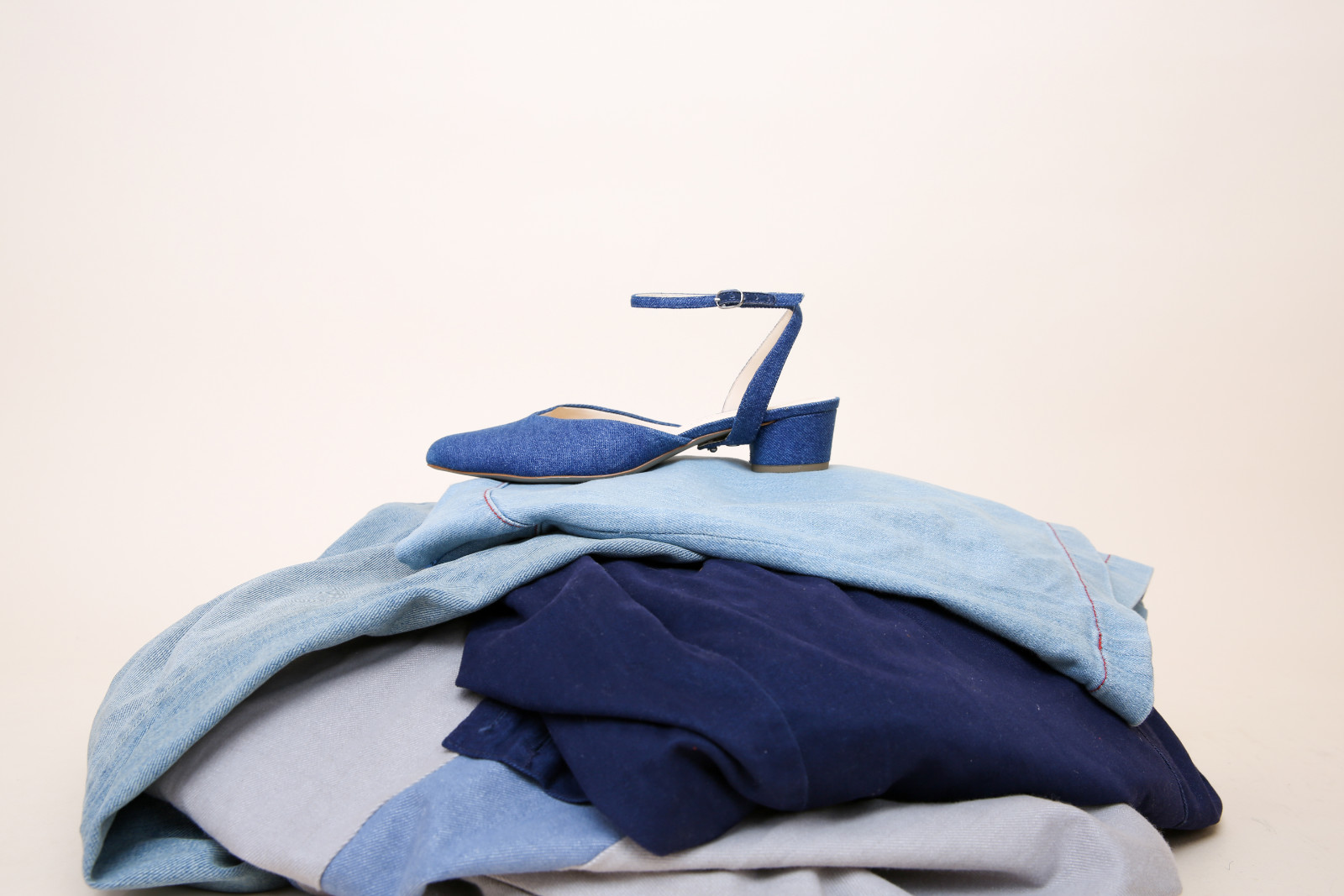
FASHION Alterre might not be the only shoe label with sustainability cred, but the way founders Harmony Pilobello and Shilpa Iyengar approach the business definitely raises the standard on how a responsible fashion brand works, writes Jack Yan
First published in the September 2021 issue of Lucire KSA
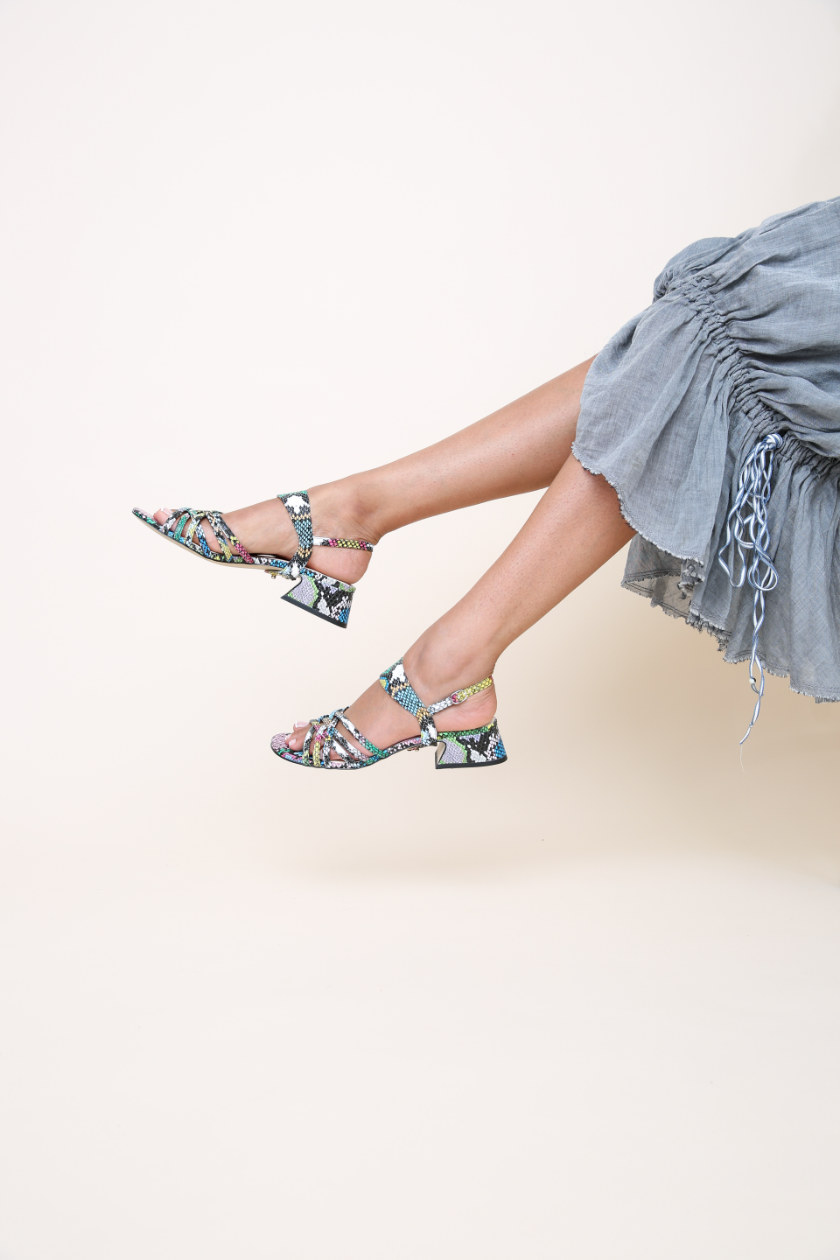
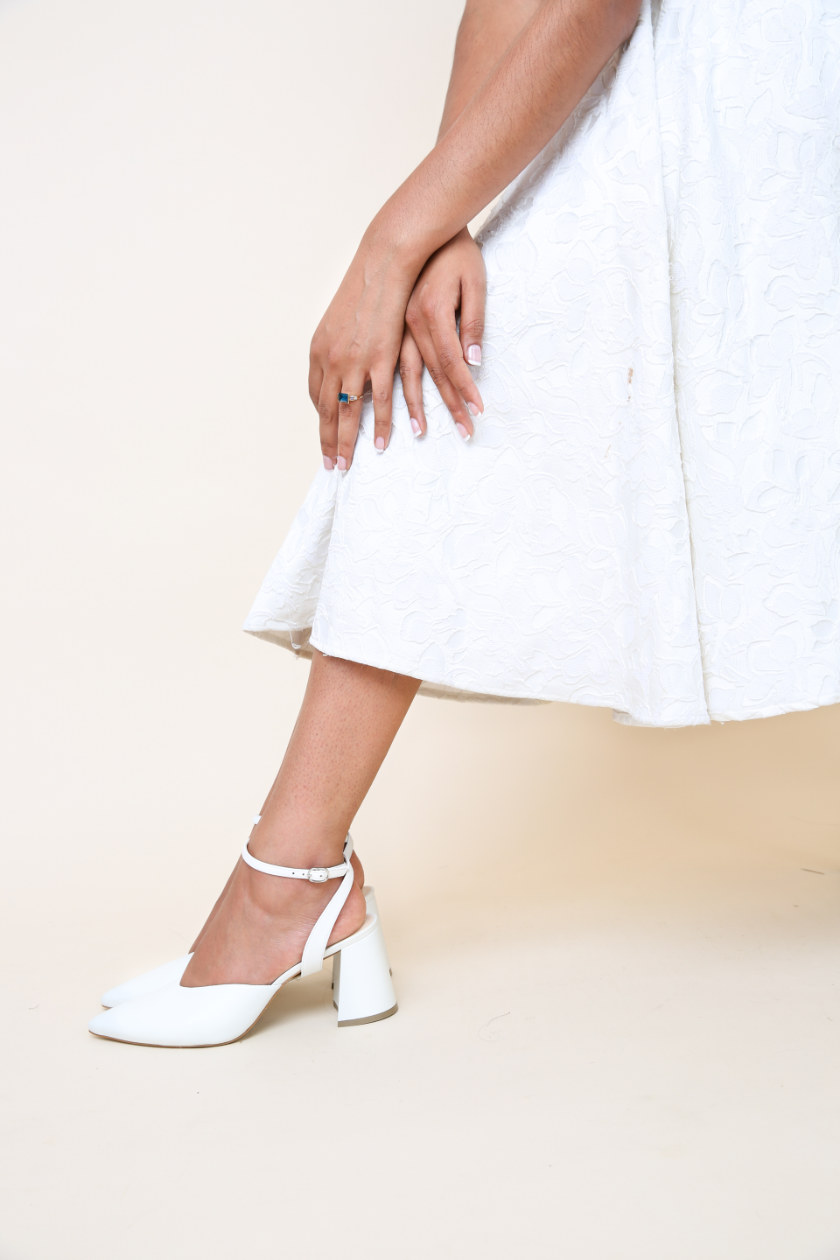
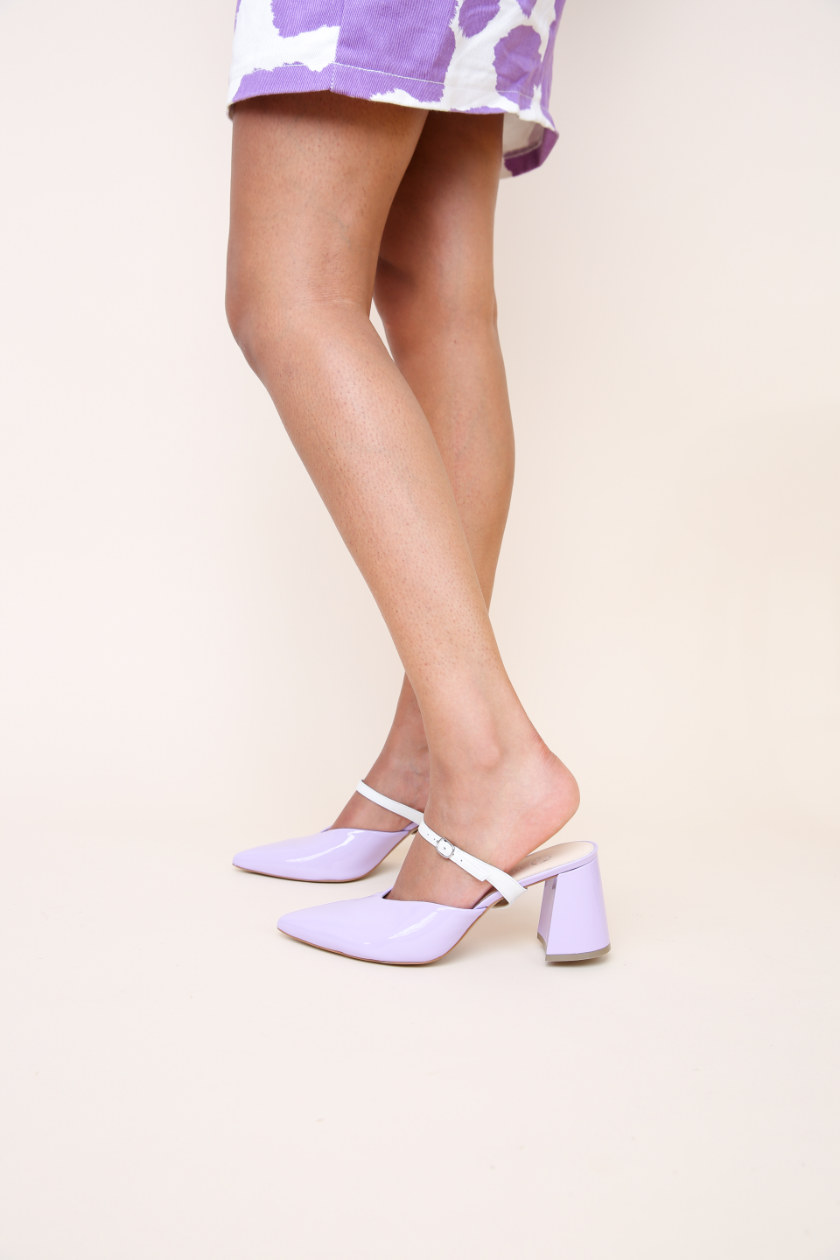
Jack Yan is founder and publisher of Lucire.
Alterre, a sustainable footwear brand in New York, brings together two talented women, both daughters of immigrants, who met when studying at Parsons, the New School for Design, and has since netted acclaim in the US, from the likes of Fast Company and Oprah Winfrey’s O magazine. The shoes are particularly clever: you can create your own pair of shoes by choosing the size, a base, and a strap, creating looks that can suit different moods and settings. The strap is well designed and affixes to the base through a patented stud system, so you don’t need to be worried about it coming off. It’s a particularly cost-effective and innovative way to creating new looks quickly. Plus the online ordering (at alterreny.com) really is as simple as 1, 2 and 3.
As with so many success stories, there is a great deal of hard work behind the scenes, as well as authenticity behind its claims. Alterre’s whole philosophy is holistic: not only have they ensured they meet modern customers’ demand for sustainability, they have been active in female empowerment, donating five per cent of all profits from each purchase to Restore NY. The organization provides long-term rehabilitation for survivors of sex trafficking. Alterre founders Harmony Pilobello and Shilpa Iyengar themselves provide peer-to-peer counselling as ‘entrepreneurs-in-residence’ at Restore NY for survivors who want to start their own businesses.
Pilobello calls their involvement in Restore NY’s entrepreneurial programme ‘very exciting’ as they share resources with the women. ‘This is an organization that is near and dear to our hearts. We love the work Restore is doing … We had already been involved in the organization through a friend of ours and knew we wanted to support them however possible. As they work specifically with foreign victims it feels closer to home, knowing our parents were also immigrants trying to start a new lease on life. We think of our mothers every time we hear a heartbreaking story and equally so when we hear celebratory stories of resilience.’
Beyond having strong mothers finding themselves in a new land, the duo have interests that drew them together. They met by chance during a digital illustration class at Parsons during their junior year, recalls Pilobello, over a shared appreciation for the macabre art movement. ‘I saw her working on a print one day and recognized it as Greenwood Cemetery, which is a Victorian-era cemetery filled with historical figures in New York City,’ she tells Lucire. ‘We were friends ever since. At the time, she was studying women’s eveningwear in addition to footwear and I was studying menswear with a focus on sustainability.’
Iyengar had one year at Central St Martin’s in London in 2011. She recalls, ‘I was looking for a change from New York and a change in design perspective. Each fashion hub in the world has its own distinct style informed by the culture it is within. They pushed me out of my comfort zone at CSM in terms of looking at fashion like art, instead of focusing on what will sell on the floor or fill in white space. I learned more artisan printmaking techniques and to step away from creating digitally. My heart will always be in New York though, so I came back with a fresh perspective and a desire to bring something unique to the US market.’
As students, each worked in the industry: Pilobello at Patagonia and Coach, Iyengar at Fabiola Aris and Gerlan Jeans. After graduating in 2012, they saw an opportunity to join forces professionally. Pilobello says, ‘It happened somewhat immediately out of college. Shilpa had an opportunity to work on a clothing line for a local non-profit and asked if I would be interested in contributing. At the time I was working corporate and loved the idea of having a passion project. It turned out our skill sets really complement each other and we continued working on various capsule collections until we landed on Alterre.’
As if the non-profit—the Young Designers’ Collective—wasn’t enough to keep them busy, the pair created a bridal brand, Untamed Bridal, that grew out of the original venture. Untamed was originally one capsule collection, but wound up with a line of hand-made bridal accessories that were sold across the US.
Alterre, meanwhile, came into being in 2015, but it took them two years to find a fair labour factory in Brazil that could understand their concept, including their commitment to sustainability. Pilobello explains, ‘There was some serious trial and error while looking for a manufacturer. We actually initially wanted to make our shoes in the US and then found out there weren’t any heel manufacturers left. Or at least none that were accessible to a small business with a new idea in footwear. After trying to work with several factories abroad and coming up short of a working relationship or prototype, we were fortuitously introduced to a contact through Shilpa’s husband. That ultimately led us down via word-of-mouth to our agents in Brazil. After flying down and spending time with the community, we knew it was the right fit.’
The factory manager even had a programme for employees to advance into management, and they were paid a living wage, both of which appealed to Alterre.
Pilobello says they are going one further with their suppliers, making sure that the materials themselves are sustainable. ‘Now that we are more established this is something we’ve been committing more time toward. We spent 2020 focusing on the social and economic aspect of our third-party suppliers and, in full transparency, it will take us a few years to make adjustments we need to feel confident about the environmental aspects. We have, however, established our code of ethics and expectations across all third-party suppliers with the help of our manufacturer. We have also increased the number of materials we source ourselves and uses that are certified in their respective industries. For example, one of our leather suppliers, Courovale, is CSCB- [Certificação de Sustentabilidade do Couro Brasileiro, or Brazilian Leather Certification of Sustainability] certified for sustainability practices in economic, environmental, and social ways. When we can fly to Brazil again after the pandemic has settled, we’ll be able to dive deeper into the areas we couldn’t from afar.’
Although Untamed had been a success, the duo never had the bridal market in mind when designing for Alterre, at least not consciously. However, Pilobello remarks, ‘It’s funny how things come full circle …
‘It wasn’t until we launched that we saw customer demand from brides and bridal parties. It was one of those “of course” moments. I sometimes think our work in bridal subliminally made its way into our footwear. Now, we design with brides in mind. We have a strong community of passionate ambitious women who want to wear something that lasts beyond their big day. Many aren’t afraid to be bold and bright with their shoes either!’
One of her specialities at Alterre is trend forecasting, and she cites numerous influences on fashion trends in recent years. ‘There are so many! I think the biggest trend has been athleisure. I’ve enjoyed seeing how it evolved over the years and the recent movement toward what I call profleisure. As we’re moving out of the worst parts of the pandemic globally, I expect professional leisure to take a life of its own in the transition to working at offices again. Another one that comes to mind is skinny jeans. It seems to have stuck around and influenced fashion far beyond a decade. It’s refreshing to see the accelerated adoption of wider leg pants and jeans.’
When we asked about when sustainability emerged as something Alterre wanted to pursue, Pilobello replies, ‘As for sustainability, it almost feels like my one true love or a quiet drum that’s been getting louder over the years. It might sound odd, but the closest comparison that comes to mind is the Jumanji movie series. The game is calling me. I grew up in a low-income household where being resourceful was necessary. I think that mindset carried into my design process. While I was in college, I jumped at the opportunity to join what was then an experimental exploration in a sustainable fashion. I was also simultaneously working part-time at Patagonia and it opened my eyes to the possibilities for the rest of the fashion world.’
Why modular? That, too, was borne from real-life experiences. ‘It started with our mutual interest in travelling. We both prefer to only bring a carry-on when we travel. It doesn’t matter if it’s for a weekend or a month. There are times it would get frustrating packing and realizing half your suitcase is just shoes or that you would have to curate an entire trip around one pair of shoes (i.e. commit to wearing black casual clothing to match your one pair of sandals). This was our answer to it. Sustainability was another driving force. We love the idea of extending the life of a shoe with new straps. Not only does it save money over time, but it promotes less waste.’
That leads to another aspect of the holistic approach to Alterre: the fact that it’s seasonless. Being modular allows the brand to eschew the seasonal cycle, as customers can create new combinations. They aim to make the shoes truly seasonless between all the combinations: ‘We always design new bases and straps with our previous designs in mind. Even if we stopped selling something, we like to think there’s a customer out there obsessed with a certain shoe base and looking for small ways to update their closet.’
continued below
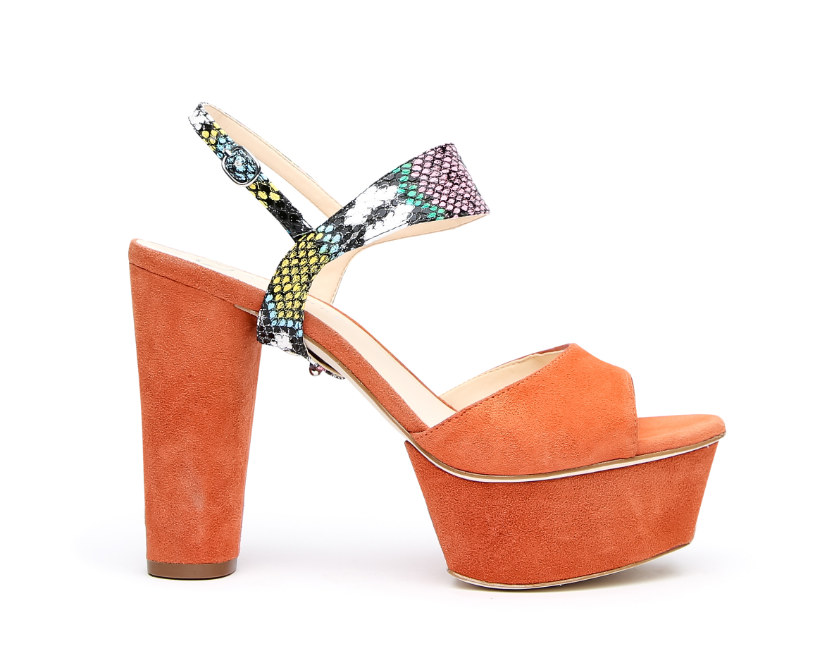
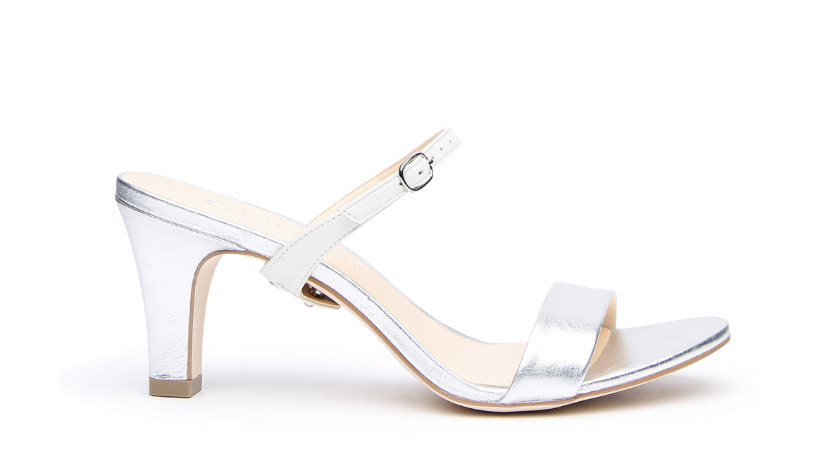
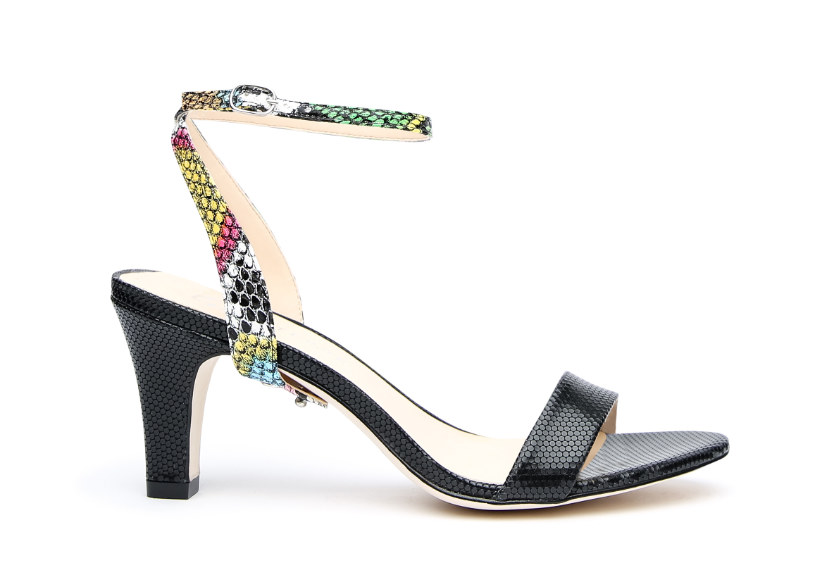
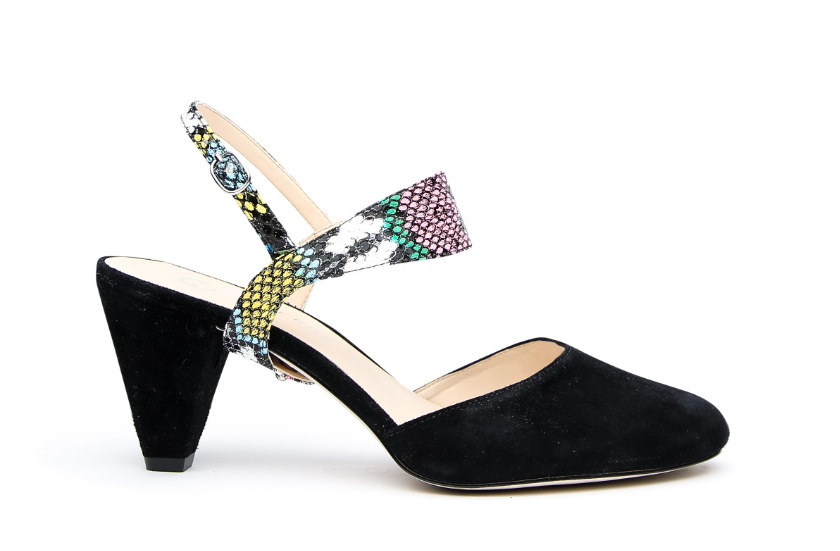
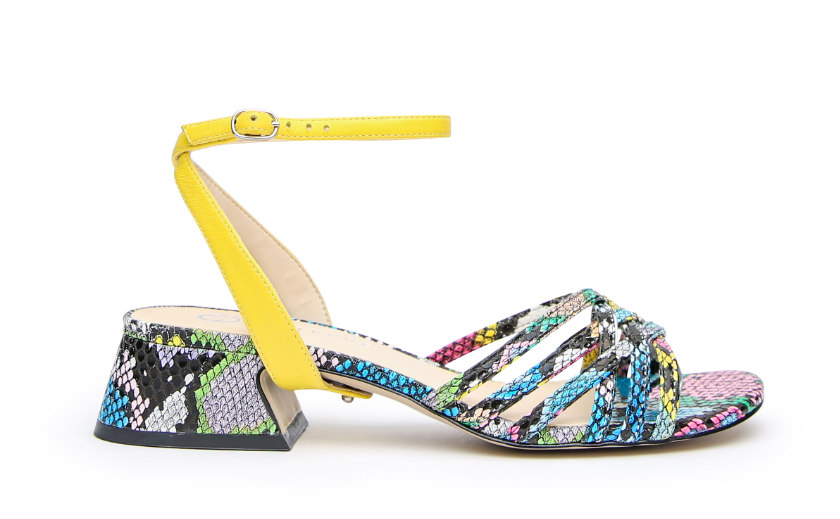
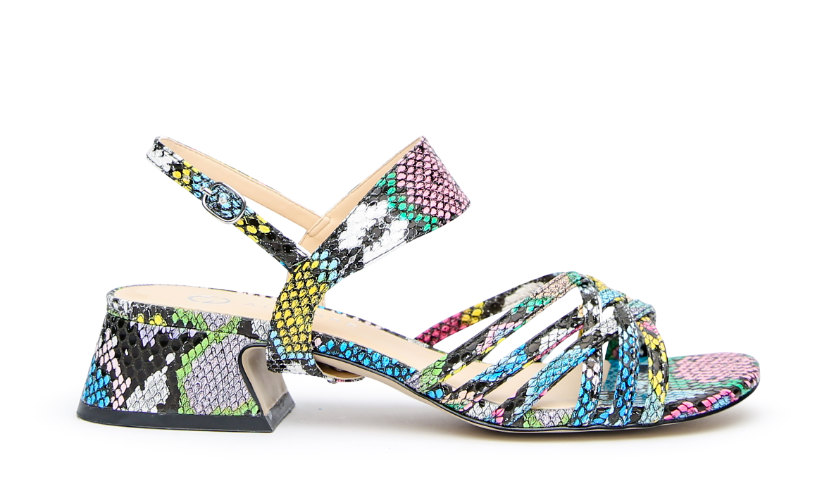
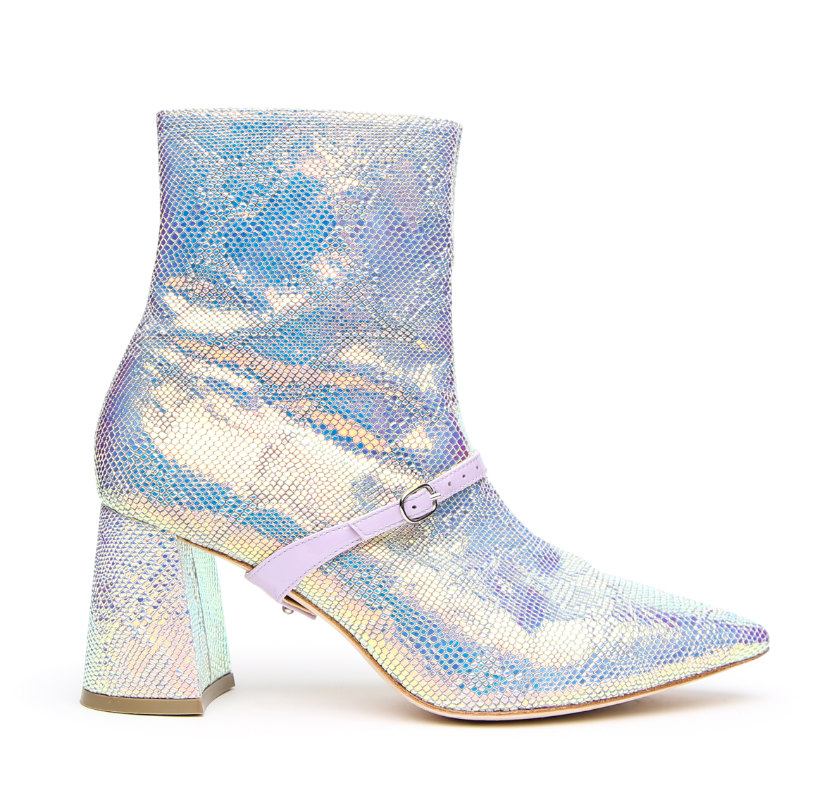 Modular design means Alterre’s shoes can always stay in style—just change out what you need
Modular design means Alterre’s shoes can always stay in style—just change out what you need
But no matter how good your concept is, there’s little point if the shoes aren’t comfortable. And Alterre scores on this front, too. ‘Women love how comfortable our shoes are. Especially for work. We have a lot of doctors, lawyers, and women in corporate leadership roles who need a go-to shoe for work and personal life. One of our most popular styles is our slide. It’s a professional lower-heel shoe perfect for running out to dinner or watching your child’s school play. The pointed toe is just sharp enough to never go out of style. Another really popular style is our classic mule. It’s a 2·5 in chunky mid-heel popular with brides and women in the workforce. The silhouette combined with our interchangeable straps makes them a go-to for year-round versatility.’
Within two years of its founding, Alterre’s success meant that the ladies made the decision to close Untamed Bridal. Pilobello says, ‘Can you call a company intersectional? If so, I think that’s ultimately what has led to our growing success. Our shoes are thoughtfully made with a holistic approach to design and sustainability. I think women really appreciate the time we’ve taken to make something that works as hard as they do. I like to think our business is like an onion. There are so many layers that make Alterre special from our sustainability effort to our commitment to community and our focus on gender equity. All of these things add to an already quality-made shoe.’
The pandemic did, however, make 2020 a ‘terrifying’ year. ‘It was probably the best and worst thing that could happen to us. Being a small business in New York as the first shutdown happened in the United States was an experience I’ll never forget. Being Asian-American it was multi-layered, with this heightened fear of violent racism. I remember biking to the city because I was afraid to be on trains and rushing to ship any last-minute orders from our office. As you may imagine, our sales also plummeted since our primary demographic was transitioning into working from home, and weddings were being postponed,’ she reflects. ‘At the same time, I feel incredibly lucky that being a small business meant we could be agile and respond quickly. We spent that time positioning ourselves to be in a better place for 2021. That meant doing a deep dive in our sustainability efforts, moving our shoes to a fulfilment centre, and closing our office.’
As a result, Alterre’s 2021 has been looking far more optimistic, and by the time readers indulge in this issue, the pair should have their first ballet shoe out. They promise it will pair well with their Twiggy strap, ‘for a Mary-Jane look.’ They’re also examining vegan leather alternatives, and moving into chrome-free leather, as they constantly strive to improve and enhance their mission. Little wonder they have secured so many fans—Summer Ray, Chris Han, and Erika Santos among them—who must appreciate that Alterre just isn’t a label that claims to be sustainable, but works on so many levels to achieve it, while giving back to some inspirational women. •
Related articles hand-picked by our editors
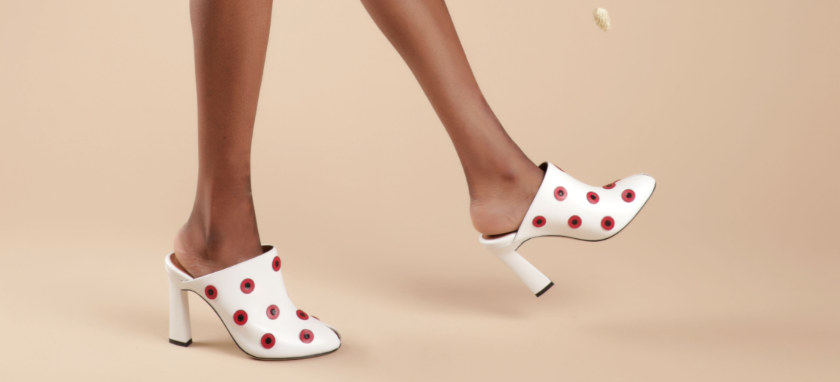
Realizing your dreams
How does a successful London-based architect change career and become a shoe designer? Jack Yan talks to Jori Papa, whose unique designs have been winning acclaim internationally
Photographed by the author
First published in the September 2020 issue of Lucire KSA
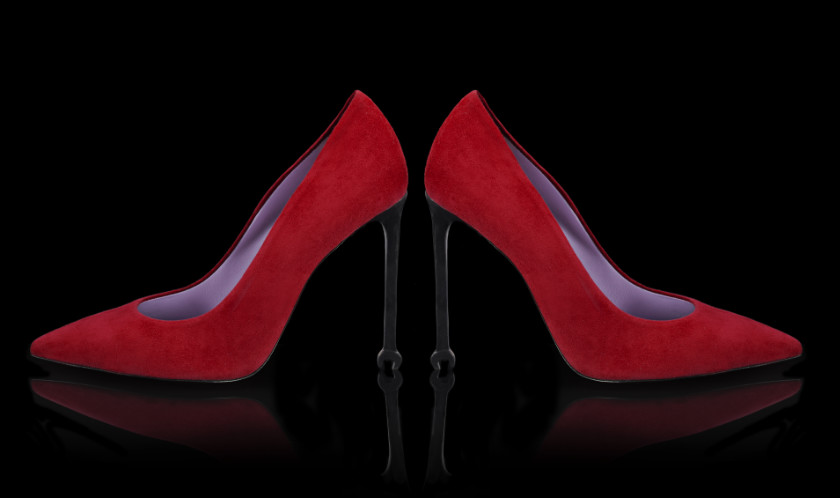
The perfect fit
Forget mass production: the perfect pair of shoes should be personally measured and painstakingly hand-crafted in Italy—that’s Barollo’s philosophy. Jack Yan interviews its founder and creative director, Darren Smith
From issue 41 of Lucire
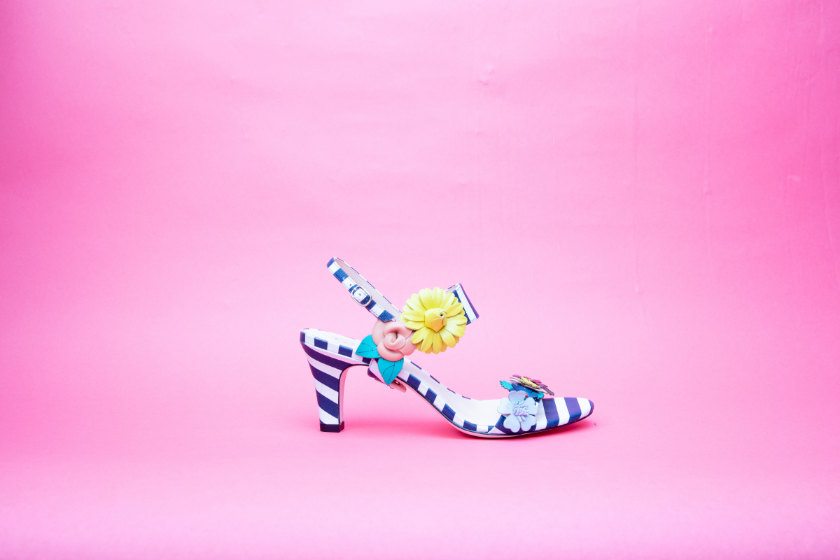
News of comfortable shoes: Alterre shows at Norwood Club
Lola Cristall attends Alterre’s Flying Circus launch, while Allbirds celebrates New Zealand’s Bird of the Year competition with two limited-edition styles
Advertisement
Copyright ©1997–2022 by JY&A Media, part of Jack Yan & Associates. All rights reserved. JY&A terms and conditions and privacy policy apply to viewing this site. All prices in US dollars except where indicated. Contact us here.